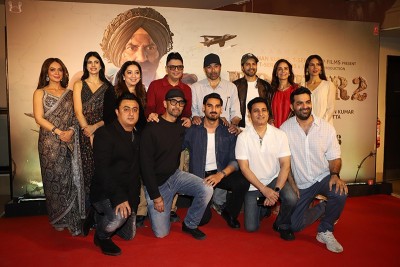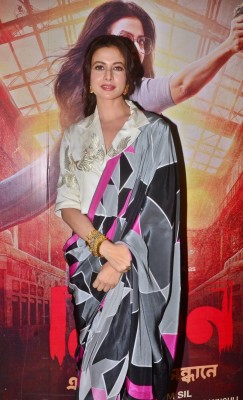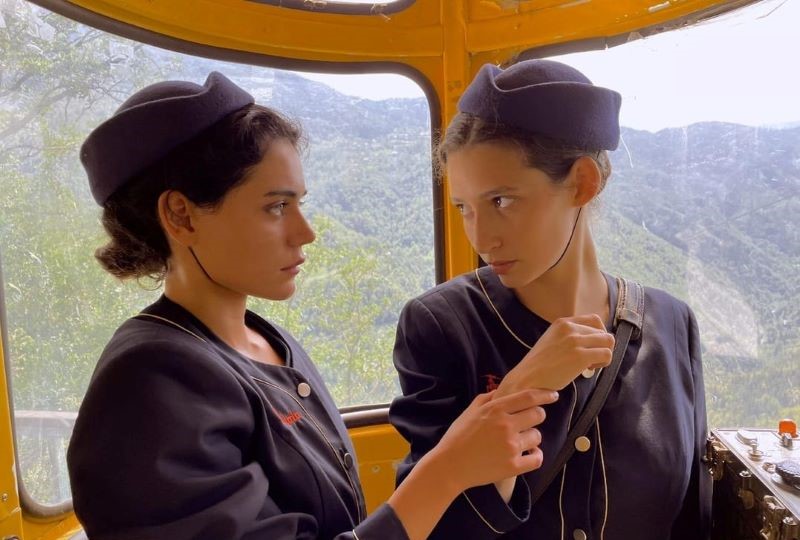 KIFF
KIFF
LGBTQ+ love story 'Gondola' at 29th KIFF: German filmmaker Veit Helmer says 'completing a film without dialogue is a rewarding emotion'
German filmmaker Veit Helmer's Gondola, which is a love story of two female cable car operators and devoid of any dialogue, was screened at the 29th Kolkata International Film Festival (KIFF). Shooting an LGBTQ+ themed film in Georgia was a challenge. IBNS correspondent Souvik Ghosh interacted with Viet, who was present in Kolkata along with his family, on the film and his style of direction.
Q. Often you have relied on vehicles, like a train in The Bra and a cable car in Gondola. Is it because of the demand in the script or do you want to keep vehicles as characters in a film?
A. Sometimes they (vehicles) inspire me. At times, locations inspire me and later on I try to find a suitable story or narration if any. But for me, it’s not the décor. I try to understand the soul of a machinery. I like to enhance or find soul in technology.
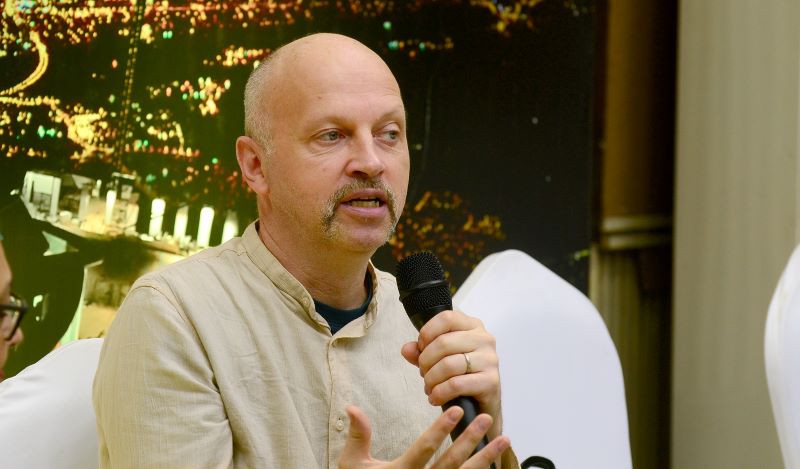 Veit Helmer | Image by Avishek Mitra/IBNS
Veit Helmer | Image by Avishek Mitra/IBNS
Q. Why did you choose Georgia as the location for Gondola?
A. This film was conceived in 2021 when I could not make a movie in Germany because of Coronavirus pandemic. I needed to find something simple and make a small crew. The co-producer from The Bra sent me photos of cable cars from Georgia. I went to Georgia and we shot the movie three months later. It was very quickly set-up production and as a consequence, we took a little time in post-production to fix some little problems which we didn’t solve in the screen-writing process.
Q. Since it’s a love story between two women, how tough was it to shoot the film in Georgia?
A. The shooting of this film about love between two women in Georgia was problematic because the country is not very tolerant (to LGBTQ+ community). We had to create a fake pretext for the location owners. We couldn’t reveal that it was a LTBTQ+ movie. So we said the story was about two cable car attendants, who have some problems with their boss. Everything could work except a scene, where one of the actresses had to undress, could not be shot in presence of the villagers. One of the real cable car attendants was always with us. My assistant, who was very clever, tricked him and shot the scene.
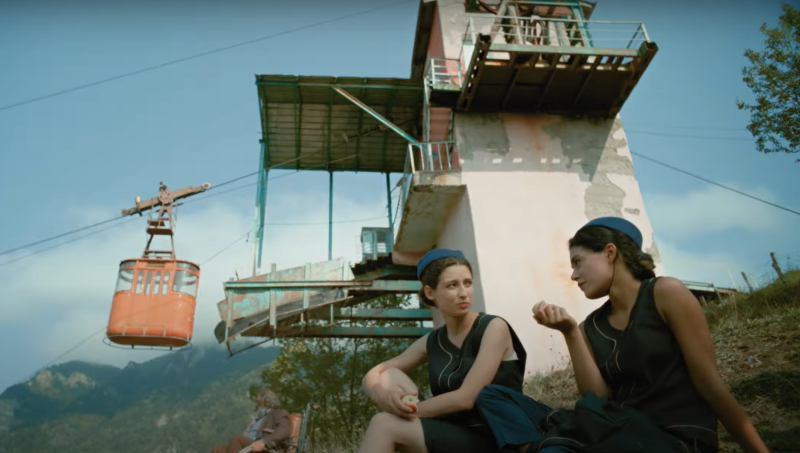 A sequence from Gondola | Photo courtesy: Screenshot grab from trailer video on YouTube
A sequence from Gondola | Photo courtesy: Screenshot grab from trailer video on YouTube
Q. Why do you keep your team small? Any specific reason?
A. My first movie had 50-60 people. There was an instance where we needed to go to the runway of the Frankfurt Airport while shooting one of my films but we were not allowed. Later, they allowed us for 20 minutes with four people. The scenes we shot in those 15 minutes were intercut in the movie seamlessly and it was the most interesting shooting for me. I don’t want the extra pressure of 50 people around anymore. I don’t want 100 meteres of trucks, cables while shooting. I feel like a prisoner. I feel free like a bird with a small crew because I can stop at and shoot at any point of the location.
Q. Tell us about your love for making films without dialogues?
A. There is something I really like about making movies without dialogues. It’s very difficult to write the screenplay and find a suitable story that can be told without dialogue. Completing a film without any dialogue after overcoming the initial problems is a very rewarding emotion and moment because we get something which we can show (screen) in any country of the world. It does not need any subtitles or dubbing.
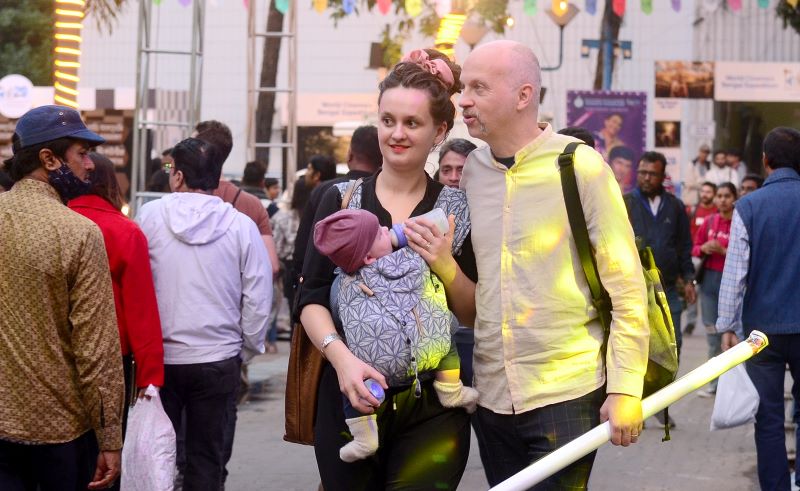 Veit Helmer with his family at 29th KIFF | Image by Avishek Mitra/IBNS
Veit Helmer with his family at 29th KIFF | Image by Avishek Mitra/IBNS
For me, watching a movie with dubbing is very frustrating because the voice of the original actors gets replaced. I get the same feeling while I watch a film with subtitles because then I start reading, depriving myself from enjoying the images. In a way, for me, making movies without dialogues is the pure essence of cinema. But to give a little correction, a story is not told through images but also through sound which is very important to me. With no dialogue, there is plenty of room for sound which is very important for me. So it's a combination of images and sound.
(Images of Veit Helmer by Avishek Mitra/IBNS)
Support Our Journalism
We cannot do without you.. your contribution supports unbiased journalism
IBNS is not driven by any ism- not wokeism, not racism, not skewed secularism, not hyper right-wing or left liberal ideals, nor by any hardline religious beliefs or hyper nationalism. We want to serve you good old objective news, as they are. We do not judge or preach. We let people decide for themselves. We only try to present factual and well-sourced news.





